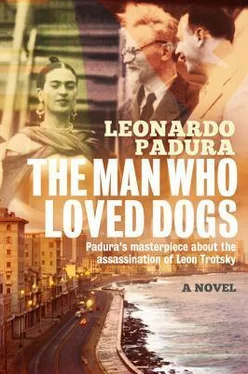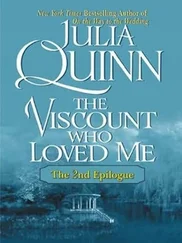Ramón suspected that he could be exceeding the limits of what was allowed when he accepted the invitation. His game of “How far can I go?” seemed similar to the one the Czechoslovaks had played throughout the first month of that year of 1968, and he presumed that, if he reached the limit, perhaps then his defenses might be invaded with infantry, tanks, and planes willing to reestablish order. But he decided to try their tempers once again.
In his conversations with Leonid Eitingon over the last two months, Ramón had received so many confirmations and revelations about his fate and of the fates of so many millions of believers that he had become addicted to those dialogues, which shed light on the actions of his life, on the very idea for which he had fought, killed, endured prison and torture, to end up living an amorphous, disappointed, aimless life. Both knew uncomfortable pieces of the past and they comforted themselves with those painful plunges into the dark depths through which their lost souls wandered. Eitingon, from the vantage point of his cynicism and with the penetrating influence he had always exercised over his pupil, had forced him to see himself from other angles and, above all, to notice the shadowy side of the utopia for which Ramón had gone, pure and full of fervor (Leonid dixit ), to the sacrificial altar. He discovered or confirmed that, among the many who were defrauded, he had a certain right of priority, like in the lines at the stores: his act stood out in that infinite circus ring where the whips have so often cracked and the clowns so often danced with their frozen smiles.
Luis had assured him that he knew Moscow like the back of his hand and that they wouldn’t have any problems finding apartment 18-A, stairway F, of building 26-C, block 7, of Karl Marx Street, in the neighborhood of Golianovo. Eitingon had given them the statue of Lenin with his arm extended toward the future as a reference: from there, they would go as far as the Friends of the Militia kindergarten and, after turning to the left — always to the left, he repeated — they would find the street, the block and the building just next to the Ernst Thälmann kindergarten.
From the very day that, for his services to the Soviet homeland, he was assigned that nationally manufactured car — that, fresh from the factory, already needed a shove for its doors to close — Ramón had handed it over to his brother, since, despite his position as an engineer and university professor, a militant in the party and a veteran of the Great Patriotic War, Luis Mercader had still not managed to climb the ladder and obtain his own vehicle. That night, Luis went to pick him up a little bit before seven and, since Roquelia preferred to stay at home, Galina, Luis’s wife, chose to leave her children with Ramón’s so to better enjoy the adventure.
Golianovo reeked of Stalin. The housing blocks, square and gray, with tiny windows where the residents hung their clothing to dry, were separated by flattened dirt paths plagued with trees fighting for space. The monotony of that rushed architecture, insistent on demonstrating that a few square feet of ceiling were enough for a person to live socialistically, caused vertigo with its uniformity and depersonalization. The numbers that ought to identify blocks, buildings, and stairways had been erased long ago by the snow and the rain. The street signs had disappeared and, over each recycled pedestal (they counted four), rose one of the statues of a frowning and watchful Lenin forged in series by voluntary labor. But none of those Lenins were pointing anywhere. When they asked the few passersby out defying the cold about the address — it was Galina’s mission, since she was a native — it always ended up being familiar, but did they mean Marx Street, Marx and Engels Street or Karl Marx Avenue? And yes, of course, they had heard of the Friends of the Militia kindergarten, and invariably they told them to turn to the left — always to the left — and ask around there, pointing at an unspecific point in the labyrinth of buildings copied from the template with the most terrifying faithfulness.
Since Leonid Eitingon was not one of the few privileged ones to whom the regional council had granted a private telephone, when Luis found himself lost in a corner of the satellite city, after searching for almost an hour, Ramón proposed they give up. He regretted that his former mentor would have invested time and savings in preparing them a worthy meal, and that they would not be able to give him the bottles of vodka that clinked next to Galina every time Luis went over a pothole, but they had to admit that they were hopelessly lost in the middle of the proletarian metropolis. At that moment Luis discovered the miracle of a taxi right in the middle of Golianovo and, after he gave the driver a bottle of vodka, he led them, in two minutes, to building 26-C of block 7. Galina then left the car and went to knock on the door of the closest apartment. A woman who still had traces of the countryside came out to the street with her and pointed at the second-to-last staircase of the large building and, with her hands, counted the floors they had to climb to reach the apartment they were looking for.
Eitingon received them with a big smile and they all had to submit to his bear hug and his alcohol-flavored kisses. While he thanked them for the vodka, he introduced his wife, Yevgenia Purizova, fifteen, perhaps twenty years younger than her husband, although she seemed even more wrinkled than him. According to what Ramón had managed to find out, when he left jail, Eitingon had resumed his relationship with his first wife, Olga Nahumova, who died shortly after, and he had been living with Yenia, who became his fifth wife, for two years.
The host and his visitors settled around the table in the center of a room that was sometimes a living room and that, as they would later find out, also served as the bedroom for Yenia’s two daughters, who lived with them. On the table, covered with an oilcloth sheet, there were already plates with copious appetizers of extreme flavors with which Russians padded their stomachs in order to drink more vodka: sliced ham, pickles, tomato and apple, strips of herring and salmon, a little bit of red caviar, scallions, Russian salad and fresh salad, sausage links, little squares of lard, and black bread.
“I don’t know what you have to complain about,” Ramón said as he cut one of the sour pickles, of which he had, curiously, become a fan.
Leonid served vodka in glasses almost to the brim and asked his wife to bring the pitcher of orange juice, specially prepared for Ramón, as he rarely drank alcohol. From the small kitchen came the pungent smell of boiled cabbage, and Ramón begged that the pelmenis serving as the main course not be loaded with the spicy pepper capable of making him cry.
“I didn’t expect you so early,” Lionia said as he handed Galina and Luis their glasses.
“But we’ve been driving around for an hour. .!” Ramón began, giving free rein to his annoyance.
“It’s normal. What do you think of my neighborhood?”
“It’s horrible,” Ramón admitted, and took a bite of caviar on black bread.
“That’s the word, ‘horrible.’ Beauty and socialism seem to play on opposite teams. But you get used to everything. Do you see how lucky you are to live overlooking the Frunze and to have three bedrooms and even a balcony?. . Da dna ?” he challenged Galina and Luis, and the three raised their glasses and hurried their vodka in one gulp, until they saw the bottoms of their glasses as their host requested.
“I didn’t always live like that. When Roquelia arrived, they gave us an apartment a little bit bigger than this one, in Sokol. .”
“That can’t be compared to this. Sokol is the waiting room to paradise, Ramón. You walk a little bit and you’re in Utopia.”
Читать дальше











